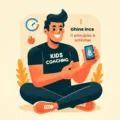Nurturing Compassion in Young Hearts
Compassion is a vital quality that helps create a kinder, more empathetic world. As parents and educators, we have the opportunity to cultivate this essential trait in children and students. By engaging in activities that foster compassion, we can help young minds develop empathy, kindness, and a deeper understanding of others. Let’s explore 17 activities that can nurture compassion in kids and students, setting them on a path to become caring and considerate individuals.
1. Storytelling with a Heart
Stories have the power to touch hearts and open minds. Incorporate books that highlight compassion, empathy, and kindness into your reading routine. Discuss the characters’ feelings and actions, encouraging children to put themselves in others’ shoes. Some great options include “The Kindness Quilt” by Nancy Elizabeth Wallace and “Have You Filled a Bucket Today?” by Carol McCloud.
2. Acts of Kindness Challenge
Create a fun challenge where kids and students perform random acts of kindness daily. This could include helping a classmate with homework, comforting a friend who’s feeling down, or assisting an elderly neighbor with groceries. Keep a kindness journal to record these acts and reflect on how they made others feel.
3. Empathy Through Role-Play
Organize role-playing exercises that allow children to experience different perspectives. This could involve scenarios like being a new student at school or someone with a disability. These activities help develop empathy by allowing kids to understand and relate to others’ experiences.
4. Community Service Projects
Engage kids in age-appropriate community service projects. This could include volunteering at a local animal shelter, participating in a beach clean-up, or helping at a food bank. These hands-on experiences show children the impact of their actions and foster a sense of social responsibility.
5. Mindfulness and Meditation
Introduce mindfulness exercises and simple meditation techniques to help children become more aware of their thoughts and feelings. This increased self-awareness can lead to greater empathy and compassion for others. Try guided meditations focused on loving-kindness or gratitude.
Frequently Asked Questions
Q1: At what age should we start teaching compassion to children?
A1: It’s never too early to start teaching compassion. Even toddlers can begin to understand basic concepts of kindness and empathy. As children grow, you can introduce more complex ideas and activities to nurture compassion.
Q2: How can parents model compassion for their children?
A2: Parents can model compassion by showing kindness in their daily interactions, expressing empathy towards others, and explaining their compassionate actions to their children. It’s also important to demonstrate self-compassion and forgiveness.
Q3: Can technology be used to teach compassion?
A3: Yes, technology can be a valuable tool for teaching compassion. There are many apps and online resources that offer interactive stories, games, and activities designed to foster empathy and kindness in children.
Q4: How can schools incorporate compassion into their curriculum?
A4: Schools can integrate compassion into their curriculum through social-emotional learning programs, service-learning projects, and by creating a school culture that values and rewards acts of kindness and empathy.
Q5: What are some signs that a child is developing compassion?
A5: Signs of developing compassion in children include showing concern for others’ feelings, offering help without being asked, expressing empathy for characters in stories or real-life situations, and demonstrating kindness towards animals and nature.
Conclusion: Sowing Seeds of Compassion
Cultivating compassion in kids and students is a journey that requires patience, consistency, and creativity. By incorporating these activities into daily life and education, we can help young people develop a deep sense of empathy and kindness. Remember, every small act of compassion has the power to create ripples of positivity in the world. As we nurture compassionate hearts in our children, we’re not just shaping their future, but the future of our entire community and beyond.
Let’s commit to raising a generation of compassionate individuals who will lead with empathy, understanding, and kindness. Together, we can create a more caring and connected world, one compassionate action at a time.









